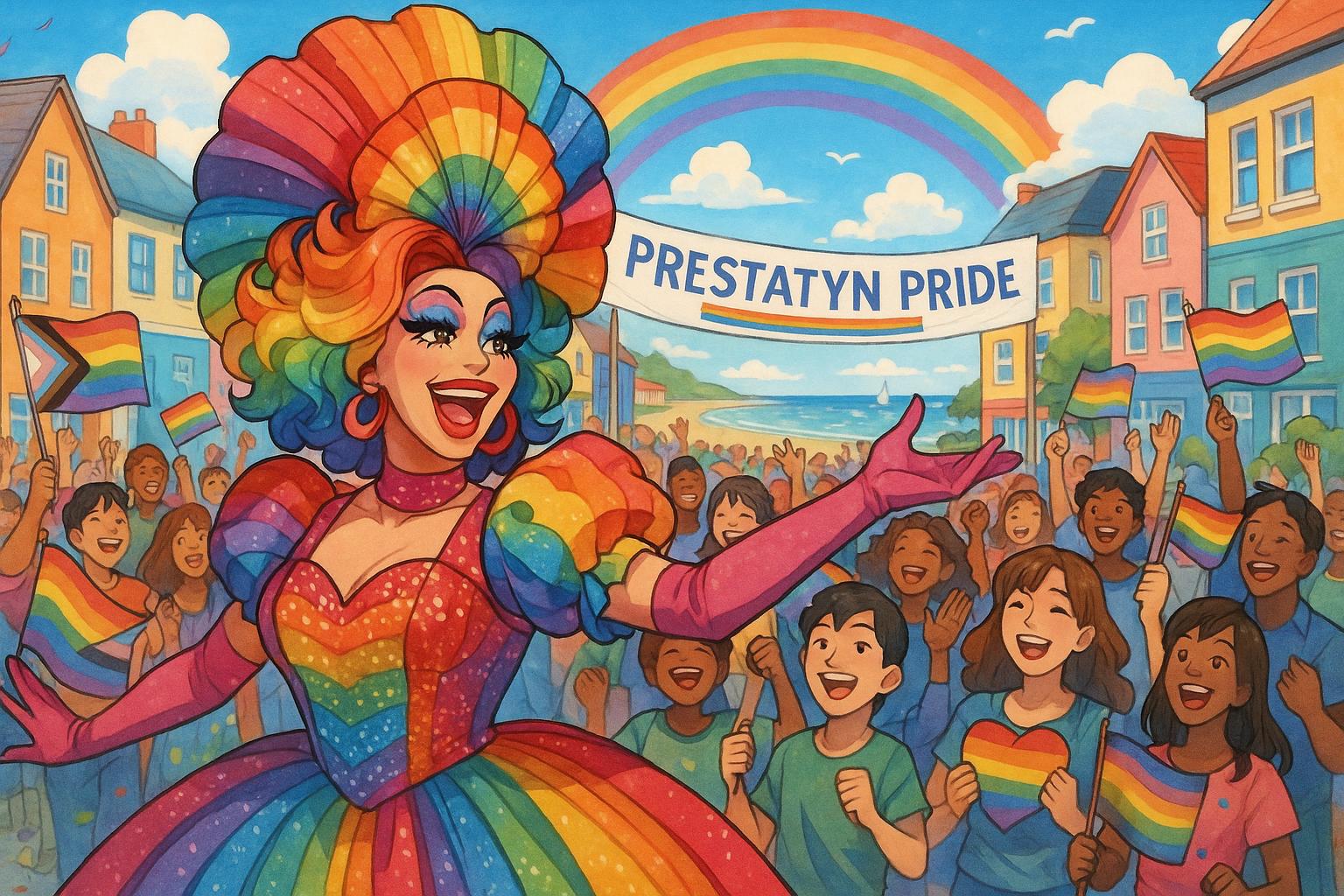On Saturday, the quaint coastal town of Prestatyn became a vibrant hub of celebration as it hosted its first-ever Pride parade, drawing together members of the LGBTQ+ community and their allies. The event showcased a dynamic array of participants, including drag performers like The Royal Serenity, Opal Rose, and Heather Boa. Among the attendees were local business owners, charity fundraiser Richard Kendrick, and Police and Crime Commissioner Andy Dunbobbin. The parade also served as a poignant tribute to James Lee Williams, the mother of drag icon The Vivienne, who was a notable LGBTQ+ advocate before her passing earlier this year, earning recognition as one of the most influential changemakers in the community.
Local businesses embraced the spirit of inclusivity by decorating their establishments in support of Pride, creating a festive atmosphere that welcomed attendees of all ages. The event, held in partnership with the Cross Foxes pub, was strongly promoted by Prestatyn Town Council with the message: "Celebrate love, inclusivity and diversity. Everyone is welcome!" However, despite the overwhelming support evident on the day, not all views regarding the event were positive. Conservative MS Gareth Davies publicly questioned the need for a Pride event in a town like Prestatyn, expressing concerns on social media that echoed sentiments from some constituents who felt the event might not resonate with the town’s demographic, which he described as "very socially conservative."
In a robust response, drag performer The Royal Serenity defended the significance of the event, especially in a smaller community such as Prestatyn. Noting that hate crimes against the LGBTQ+ community had risen sharply in recent years, she emphasised that discussions around pride and representation need to evolve. The Royal Serenity highlighted that the parade's attendees, adorned in rainbow colours, represented a diverse cross-section of the community, illustrating the collective desire for visibility and acceptance.
Davies’s comments suggested a disconnect between some local residents and the need for LGBTQ+ events, as he posed challenging questions: "Who wanted this event? Who funded it? Is it in the best interests of the residents?" The Royal Serenity countered these assertions by stating that the event not only promoted local business—encouraging visitors to explore the town—but also fostered a sense of belonging and community for individuals who might feel isolated. She articulated that the economic boost from visitors could benefit a range of local services, from bars and eateries to hotels, countering the notion that such gatherings are misplaced in a smaller, more conservative setting.
Moreover, The Royal Serenity pointed out the importance of smaller Pride events, arguing that they are essential for promoting LGBTQ+ visibility and community cohesion outside larger urban centres. She asserted, "This brings Pride to small towns like Prestatyn. It creates safe spaces for individuals to connect and access resources they might need." Her impassioned message underscored Pride's role as a celebration of identity and an opportunity for all community members, regardless of their orientation, to come together in solidarity.
As discussions around the event continue, the broader implications of hosting a Pride parade in smaller towns like Prestatyn highlight a crucial moment for the LGBTQ+ community in Wales. With other regional Pride events scheduled in neighbouring areas, including the upcoming North Wales Pride in Bangor and Abergavenny Pride, public engagement and grassroots support are paramount in ensuring that these celebrations thrive. Each event contributes to a growing recognition of diversity in rural and suburban settings, fostering acceptance and understanding in a way that transcends geographical boundaries.
📌 Reference Map:
- Paragraph 1 – [1], [2]
- Paragraph 2 – [1], [2]
- Paragraph 3 – [1], [4], [5]
- Paragraph 4 – [1], [6]
- Paragraph 5 – [2], [7]
Source: Noah Wire Services
